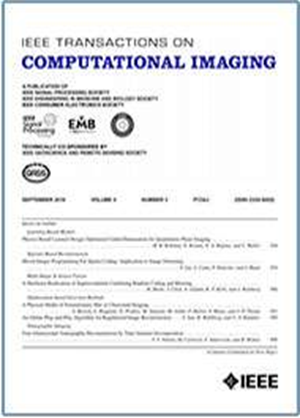Arbitrary-Scale Image Super-Resolution via Degradation Perception
IF 4.2
2区 计算机科学
Q2 ENGINEERING, ELECTRICAL & ELECTRONIC
引用次数: 0
Abstract
In recent years, with the rapid development of deep learning, super-resolution research oriented towards arbitrary scale (e.g., arbitrary integer and non-integer scale factors) factors has achieved great success. However, in terms of pixel space, the degradation in the same image at arbitrary scale factors is spatially variable. Similarly, the degradation is variable for different scale factors. In this paper, we propose a method that can adaptively deal with varying degradation at different scale factors, which consists of two parts. The first part, Image Refinement Network (IRN), adopts a dynamic convolution method to deal with different degradations under arbitrary scale factors on a pixel-by-pixel basis. It solves the spatial invariance problem of the ordinary convolution kernel. For well calculating the pixel mapping relationships that change during the super-resolution of arbitary scale factors, we propose a second Module, Super-Resolution Encoding Guidance Module (SREGM). It takes the high-resolution pixel space as a reference frame and uses the modelling results as prior information to better guide the high-resolution reconstruction. Extensive experiments have shown that our method achieves good results in the super-resolution of a single image with an arbitrary scale factor.通过退化感知实现任意尺度图像超分辨率
近年来,随着深度学习的快速发展,面向任意尺度(如任意整数和非整数尺度因子)因子的超分辨率研究取得了巨大成功。然而,就像素空间而言,同一图像在任意尺度因子下的劣化在空间上是可变的。同样,不同比例因子的劣化程度也是不同的。在本文中,我们提出了一种可以自适应处理不同比例因子下不同退化的方法,它由两部分组成。第一部分是图像细化网络(IRN),它采用动态卷积方法,以像素为单位处理任意比例因子下的不同降解。它解决了普通卷积核的空间不变性问题。为了很好地计算任意比例因子超分辨率过程中发生变化的像素映射关系,我们提出了第二个模块,即超分辨率编码指导模块(SREGM)。它以高分辨率像素空间为参照系,并将建模结果作为先验信息,以更好地指导高分辨率重建。广泛的实验表明,我们的方法在任意比例系数的单幅图像超分辨中取得了良好的效果。
本文章由计算机程序翻译,如有差异,请以英文原文为准。
求助全文
约1分钟内获得全文
求助全文
来源期刊

IEEE Transactions on Computational Imaging
Mathematics-Computational Mathematics
CiteScore
8.20
自引率
7.40%
发文量
59
期刊介绍:
The IEEE Transactions on Computational Imaging will publish articles where computation plays an integral role in the image formation process. Papers will cover all areas of computational imaging ranging from fundamental theoretical methods to the latest innovative computational imaging system designs. Topics of interest will include advanced algorithms and mathematical techniques, model-based data inversion, methods for image and signal recovery from sparse and incomplete data, techniques for non-traditional sensing of image data, methods for dynamic information acquisition and extraction from imaging sensors, software and hardware for efficient computation in imaging systems, and highly novel imaging system design.
 求助内容:
求助内容: 应助结果提醒方式:
应助结果提醒方式:


